As a novel virus that quickly catapulted the world into a global pandemic, COVID-19 has affected the daily lives of people everywhere. Even though the virus is thought not to affect babies and young children, neonatology and pediatric care has also been transformed to keep the safety of our patients top of mind.
How has neonatal care changed in response to COVID-19?
With the outbreak of coronavirus, neonatal care has evolved to keep newborns and their mothers as safe as possible.
For the first few months of the pandemic, in coordination with guidelines from the CDC, we followed a similar process as when mothers have the flu. Mothers who tested positive for COVID-19, or were under investigation, were isolated from their babies upon birth to ensure the safety of the baby.
One of the biggest reasons for this isolation was to identify and prevent vertical transmission (a newborn possibly could be infected in utero from the mother before they are born). If the mother tested positive for COVID-19 or showed signs, the baby was then also tested after birth during isolation.
This process changed at the end of July 2020 and mothers are now able to stay with their newborns after birth.
Aside from this careful process of isolation, the biggest change that hospitals have seen in regard to new mothers and their babies is the limitations on visitors. In most cases, the mother and one other support person are the only people allowed inside the room during delivery. If the newborn spends time in the NICU, the mother and father (or the mother’s significant other) are the only visitors allowed.
What has been PediNotes’ role in keeping track of new data related to COVID-19?
The interoperability of PediNotes with the hospital’s EMR has been key in keeping track of infants who are born to mothers who have been exposed to COVID-19.
Data about the mother’s symptoms and potential exposure is collected through the hospital’s EMR well before birth. Without changing the way PediNotes operates, we have been able to electronically pull this maternal data into our interface during or after labor and delivery. Using this data, we’re able to easily track infants who are born to COVID-19 positive mothers or mothers who were under investigation. This helps our clinicians stay informed and determine the best procedures to move forward with the newborns’ care.
What has the experience of COVID-19 been like for healthcare providers?
COVID-19 is a novel virus, and there’s still so much we don’t know about it. Over the past few months, data collection has become extremely important, and there’s been an explosion of clinical information as healthcare providers, scientists, and more attempt to learn more about the virus.
There are a lot of questions we don’t have answers to, but data collection is going to point us in the right direction for better treatment and hopefully future prevention of COVID-19 infections.
Current news gives a glimpse of how healthcare workers have been affected working on the frontlines of the pandemic. The virus is taking a big toll on these workers, whether they are physicians, nurses, administrators, lab techs, or maintenance staff. A huge part of this impact is coronavirus fatigue. Often, the virus is all healthcare workers see and think about, leading to a drain on their mental and emotional well-being.
In neonatology, we haven’t seen too much of an impact on our newborns. This is ultimately a good thing for neonatal care.
As a healthcare provider, my recommendation to everyone is to continue to be patient. A coronavirus vaccine is going to take a while, and even effective prevention and treatment plans are still being established. In the meantime, it’s very important to follow the CDC’s guidelines. Wear a mask in public and wash your hands. Recent studies show that these small precautions do help prevent infections.
How has PediNotes improved patient care during the pandemic?
The interoperability of PediNotes with the hospital’s EMR has helped us enhance information collected about COVID-19 symptoms and exposure to share with neonatal providers. The ability to track this information through PediAnalytics allows us to easily have access to data that we can study to understand how to better take care of our community.
PediNotes is a tool meant to enhance the hospital’s EMR by organizing information from multiple sources and sharing it with providers. Our goal is to decrease the stress on clinical teams in all situations, but particularly during this pandemic, by having all necessary information readily available in one platform.
Learn more about PediNotes and the features available to enhance your current EMR.
You can also subscribe to our newsletter to stay up-to-date on our neonatal-focused EMR solutions.






